It is a long way from Salisbury to the Llyn Peninsula. This was a pilgrimage of sorts to the RS Thomas Poetry Festival. https://rsthomaspoetry.co.uk/ The slow and wet journey north was worth every turn in the road and queue ad a number of speakers broke open the words for the gathered pilgrims.
RS Thomas ministered in a number of parishes in Wales before he reached the last village before Ireland. The journey down to Aberdaron is noteworthy for a number of reasons. At the peninsular the land becomes more stark – it looks and feels less cluttered! You move down to the headland where the sea takes over almost completely. This place and its landscape have drawn pilgrims, writers, poets, artists and those in need of space to breathe deeply. Here people breathe more deeply and slow themselves up to listen. In the space the soul asks questions. The raw beauty of space enlarges the heart and disturbs us out of complacency.
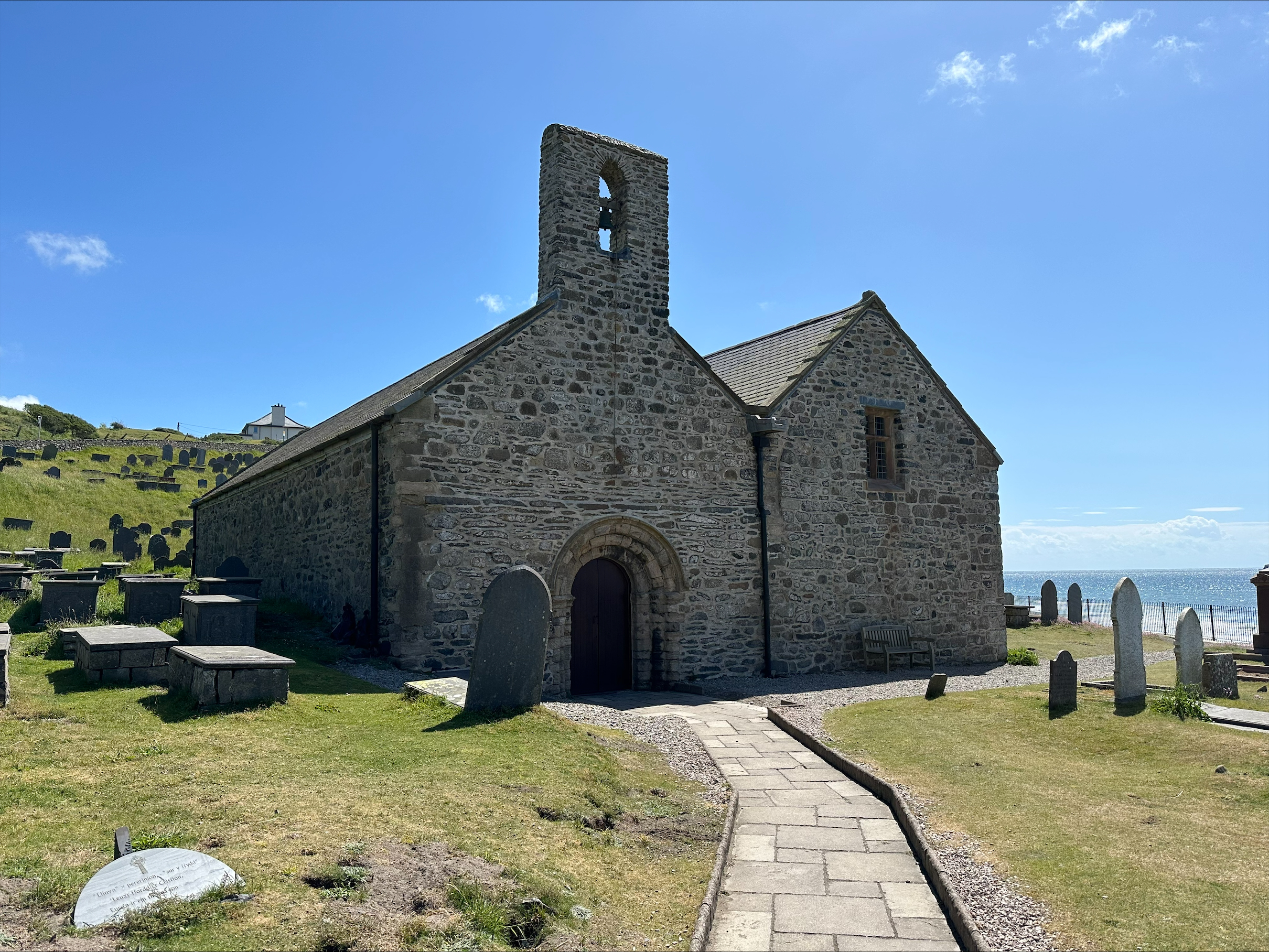
Mark Pryce in his lecture on Saturday 15th June invited his audience to consider RS ( as I learnt he was referred to here) as a spiritual guide – an interrogator, an animator and steerer of the soul as his poetry captures the mystery of God. The still and steady hand of Thomas opens up of vistas of the mystery of God as both present and absent. We glimpsed in this lecture the ‘pilgrim tenacity of Thomas in his search and perseverance for the truth. In an unreligious time Thomas, Pryce showed us, bears witness to the gift of the steadiness of endeavour.
I found this a helpful way of understanding the shifting shape of the religious landscape. Where are we to find truth? How do we listen to our spiritual longings ? Pryce captured this with inviting us to consider questioning as a spiritual practice. This is a pilgrimage of the spirit which can never be trapped in buildings – or even the landscape ! In the struggle there is hope and solidarity.
We must therefore be ready with RS to ask questions and to know that finding God is difficult. We must stay with the journey however challenging and perhaps find companions along this way. I was taken back into the life of Sarum and its learning that is shaped by a multiplicity of traditions and stories of the lives of faith. Rooted in the Christian tradition we must be careful of the constraints of ecclesiological structures as we discover our own voice and vocation. This can be the wellspring of our commitment to social change. This is theology and spirituality that shapes, transforms and liberates. In the space between the lines we wrestle and meet the Divine.
There was much more – Nicola Slee on Jim Cotter, a sixty strong choir singing hymns and the irrepressible and highly organised Susan Fogarty.
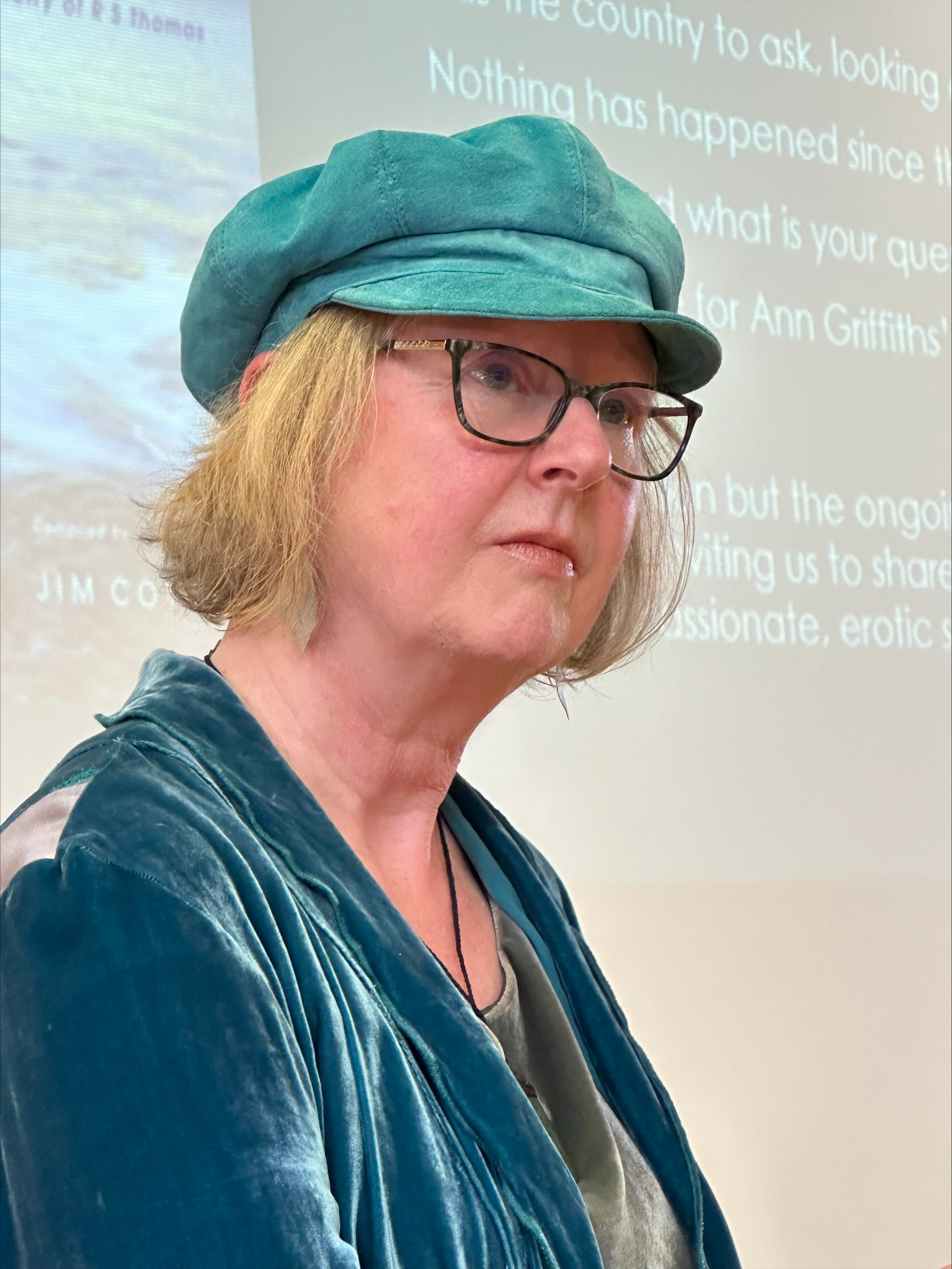 Perhaps it is appropriate to leave the last words with RS
Perhaps it is appropriate to leave the last words with RS
Kneeling

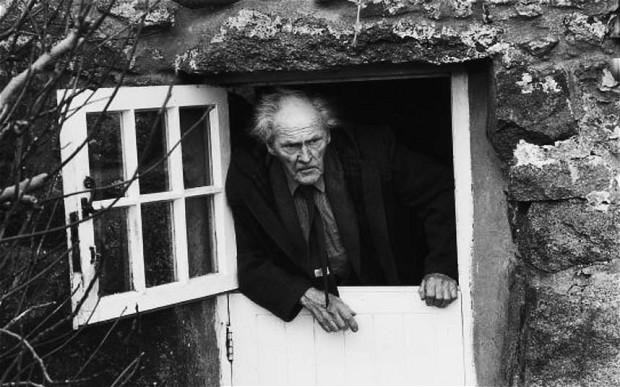
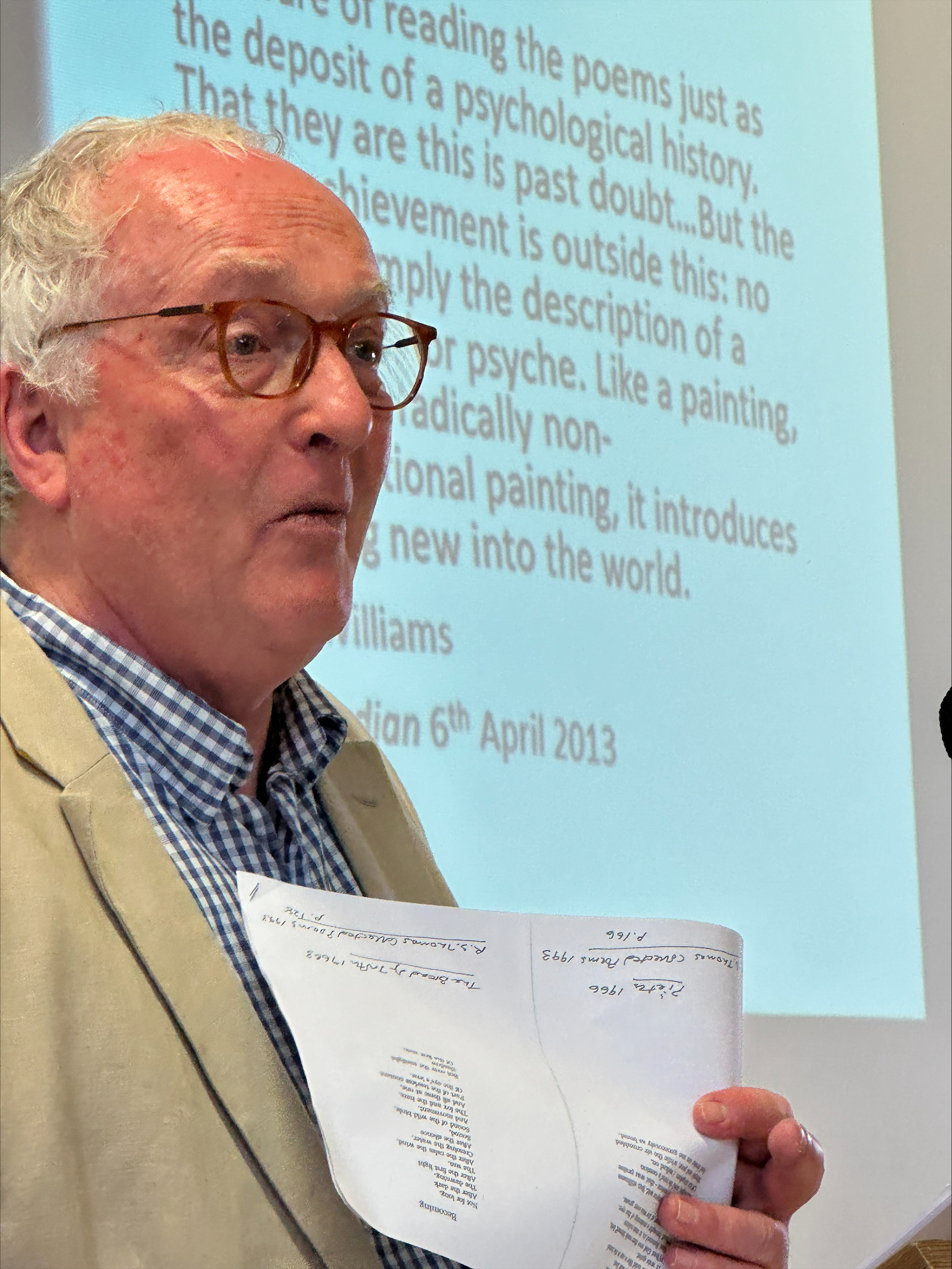
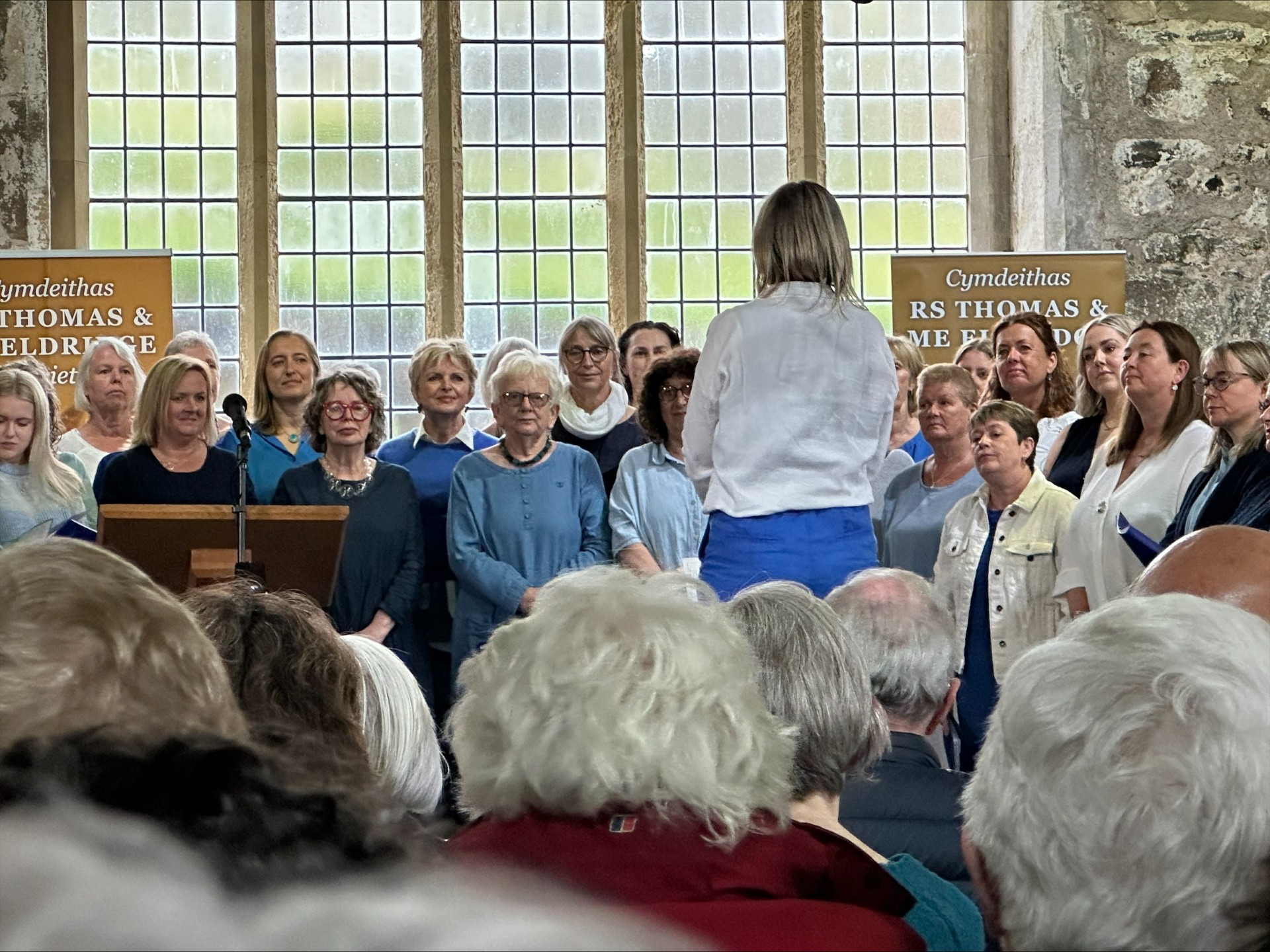
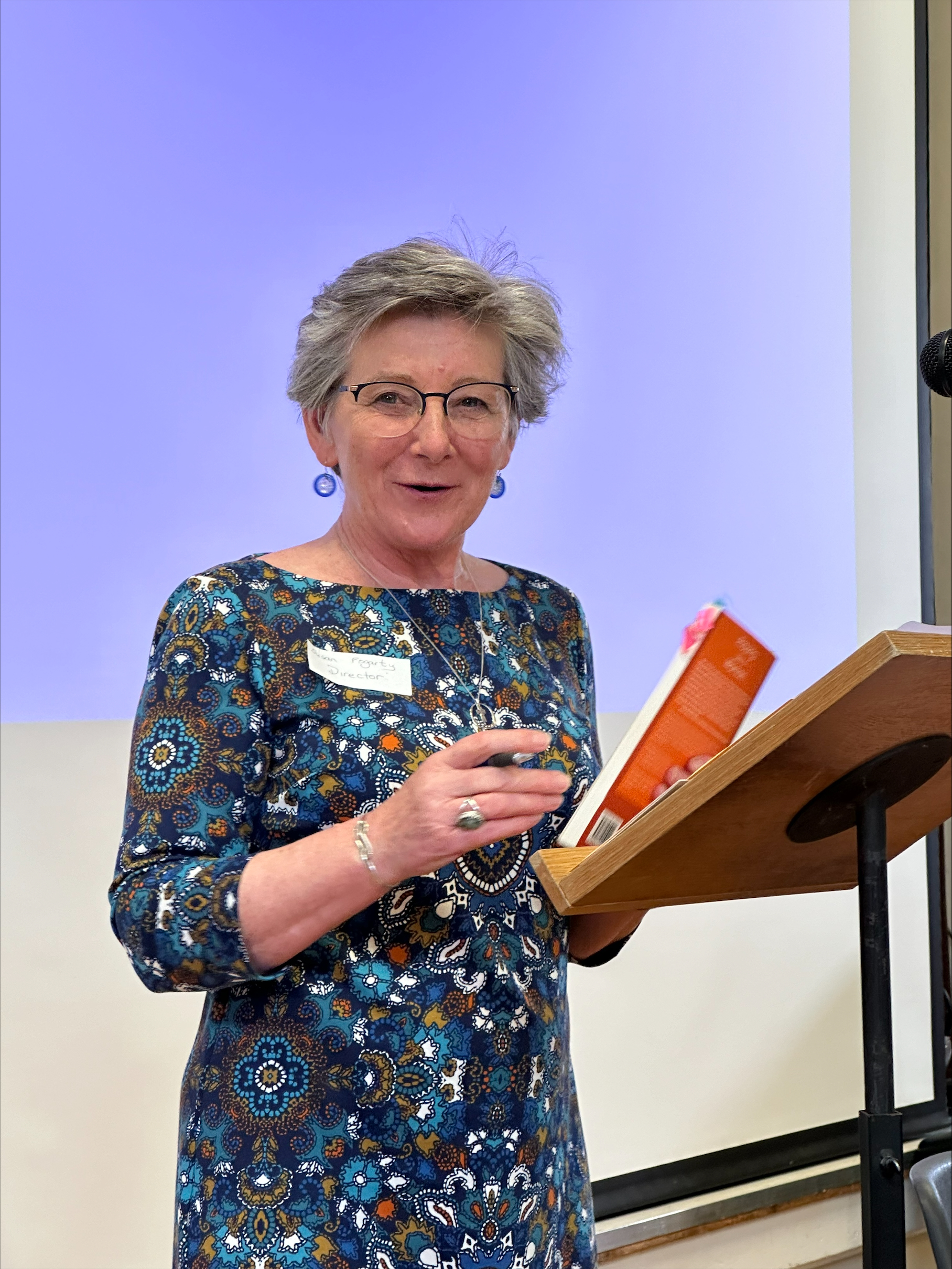
Thank you so much James for this posting….
so nourishing!
Greetings,
Edward
I’m drawn to the idea of slowing down, the soul asking questions and steadiness of endeavour. I would have loved to have been with you, but I sat at home and read ‘counterpoint’. I even wrote responses to some poems on the page. It was freeing!
Thank you James, for your summation of the festival.
You have highlighted the depth of theological thinking, expressed through the lyrical beauty of poetry, alongside the uplifting Welsh choral experience that are “poems from the soul”.
Thank you for this. Sadly I’ve not been there this year, but it’s lovely to feel the ‘magic’ of the Lleyn (and RS) through your words. There’s much to ponder here. Thank you again!
Thank you for the lovely review and photographs.
Just one point – RS’s ‘Kneeling’ (in my Collected Poems 1945 – 1990 p 199) should be justified left, as in the original.
Centre-ing the poem makes it subtly different and weakens the very definite break in the original between ‘message’ and ‘Prompt’. That white space after ‘message’ and on the next line before ‘Prompt’ enacts the waiting in the visual appearance of the poem on the page . RS usually justified his poems left, and I cannot think off the top of my head of any example where he centred a poem, though he often included some inset lines within a poem.
(Notice too that the waiting is continued by its being the last word of the poem – RS is such a skilled writer)
thank you Mary and quite right to point this out ! Very best to you from Salisbury
A very interesting read and well chosen RS poem.
Art attempts to open minds and heal wounds.
This is a very perceptive review.
For me, the highpoints were Nathan Munday and Daniel Westover, both of them brilliant lectures.